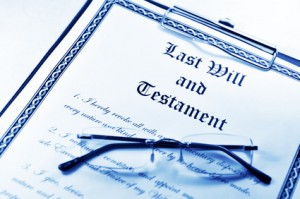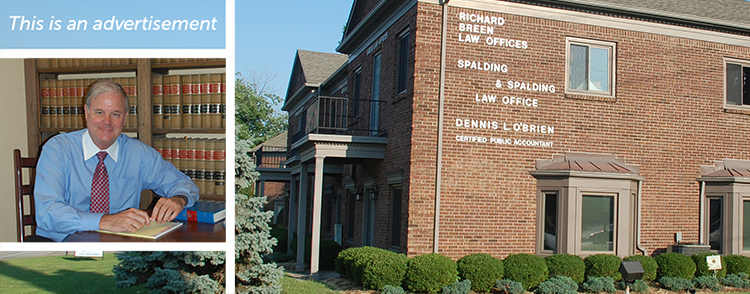Actor Paul Walker was a popular movie star known for his leading role in the movie franchise The Fast and the Furious, which had to do with the dangers and joys of high-speed racing. At the relatively young age of 40, the actor died on November 30, 2013, following a fiery car crash involving one of the fastest cars on the American highway. The Porsche Carrera GT, driven by Walker’s friend Roger Rodas, was destroyed upon impact after reaching speeds of over 100 mph. Despite the parallels between Walker’s appreciation of leading a high-adrenaline life in his work and away from the cameras, it appears that Walker regarded his estate plan with a much more conservative bent. Over a decade before his untimely passing, he created a pour-over will, laying out a roadmap to successfully passing on his estate. [Read more…]
Charitable Planning Is Estate Planning
Billionaire Daniel Ludwig’s estate recently donated $540 million to six cancer research facilities. The very generous gift will have a significant impact on cancer research for many years to come. While most of us won’t have an effect that financially drastic when we’re gone, we can still make a positive difference by continuing to support our favorite charities after our deaths by remembering them in our estate plans.
In a will-based estate plan, charitable planning will generally take the form of outright gifts. In other words, the gifts won’t be made to the charities until your estate has been probated, which can significantly delay the gift. Trust-based estate plans have far more flexibility, allowing you to make gifts over time or even after all of your descendants have passed away. [Read more…]
Dealing with the Stocks of an Estate
 Last summer, Hollywood and fans mourned the passing of Nora Ephron, the iconic screenwriter, producer and film director. The popularity of romantic comedy mainstays like “When Harry Met Sally,” “Sleepless in Seattle,” and “You’ve Got Mail” helped Ms. Ephron amass an estate valued at over $27 million.
Last summer, Hollywood and fans mourned the passing of Nora Ephron, the iconic screenwriter, producer and film director. The popularity of romantic comedy mainstays like “When Harry Met Sally,” “Sleepless in Seattle,” and “You’ve Got Mail” helped Ms. Ephron amass an estate valued at over $27 million.
The details of where she invested her assets became public information after her executors filed the Last Will and Testament. Along with real estate located in Beverly Hills, East Hampton and Manhattan, at least $10 million was invested into stock, including such high-tech startups like Google, Amazon and Apple. [Read more…]
Considering Who Family Is in Estate Planning
 During the holiday season, reasons abound to gather with family. Many individuals choose to embrace the spirit of reconciliation for the sake of family unity, putting aside differences and arguments– at least temporarily. The importance of articulating those family relationships is not only important during the holidays, however, but within the estate planning context.
During the holiday season, reasons abound to gather with family. Many individuals choose to embrace the spirit of reconciliation for the sake of family unity, putting aside differences and arguments– at least temporarily. The importance of articulating those family relationships is not only important during the holidays, however, but within the estate planning context.
So, where can you begin the conversation? First, identify whom you consider part of your family. Pay special attention to life stages of family members. [Read more…]
Young Adults Need Estate Planning Too
 Estate planning is not the sole domain of newlyweds and the retired. Did you know that anyone over eighteen years of age should have drafted certain key estate planning documents? As this article in the Wall Street Journal describes, many parents believe that they may continue making healthcare and financial decisions on behalf of their grown children. In the eyes of the law, however, at eighteen years of age, the child has crossed into a new category: that of having legal capacity. With that capacity, certain rights attach and, as most adults understand, with those rights come responsibilities. [Read more…]
Estate planning is not the sole domain of newlyweds and the retired. Did you know that anyone over eighteen years of age should have drafted certain key estate planning documents? As this article in the Wall Street Journal describes, many parents believe that they may continue making healthcare and financial decisions on behalf of their grown children. In the eyes of the law, however, at eighteen years of age, the child has crossed into a new category: that of having legal capacity. With that capacity, certain rights attach and, as most adults understand, with those rights come responsibilities. [Read more…]
Last will, living will, and living trust
 Let’s face it: estate planning can become confusing quickly. A question I often get from clients is, “What’s the difference between a living trust, a last will, and a living will?”
Let’s face it: estate planning can become confusing quickly. A question I often get from clients is, “What’s the difference between a living trust, a last will, and a living will?”
As all have similar, seemingly interchangeable names, so it’s easy to mix them up. To simplify things, here is an overview of each:
Last Will
A last will is used to distribute property to beneficiaries, specifically last wishes, and name guardians for minor children. [Read more…]







